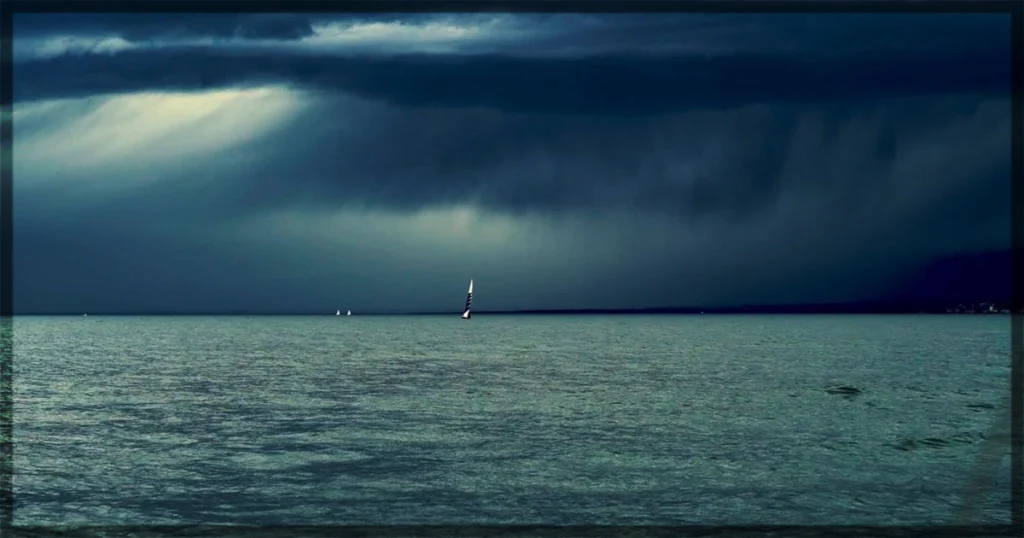Naomi Kawase is arguably the most well-known Japanese female director internationally. Previously, she competed in the Festival de Cannes competition five times with Shara in 2003, The Mourning Forest in 2007, Hanezu in 2011, Still the Water in 2014, and Radiance in 2017. Her 2020 feature, True Mothers, appeared on the faithful list of that festival, dedicating it to titles that wouldn have competed if the festival had happened that year. Hence, Kawase is the female director with the most participations in the Festival de Cannes competition in history. In this sense, she is a famous name in the Prestigious European film festival circuit. Her latest film, Yakushima’s Illusion, became the final addition to the Locarno film festival Concorso Internazionale. It is the Japanese director’s first film in three years, since she released the official Tokyo Olympics film in two parts, the Side A and Side B.
In her latest effort, the director tells the story of Corry (Vicky Krieps), a French doctor with expertise in transplants. After a traumatic event, she receives the opportunity to participate in a doctor’s exchange program between her institution in France and the Kobe transplant center in Japan. She moves from France to Japan, a country that historically has the lowest rate of transplants among the industrialized nations. Consequently, her work is to assist the parents of children on the transplant waiting list, as they have to wait up to 1700 days to have the opportunity to receive a transplanted heart. In the meantime, she meets Jin (Kanichiro Sato), a young fisherman who enjoys exploring the natural beauties and photographing the world around him with his analog camera. Promptly, Corry and Jin fall in love, sharing the cultural exchanges between the two different cultures.
In this sense, the director discusses two topics of controversy and taboo in the country: disappearance and transplants. Japan has a high rate of disappearings and an utterly low rate of transplants, particularly because of the cultural belief in the soul’s passage, and the rejection of older generations to donate organs of their loved ones. Hence, Kawase introduces an affectionate and caring doctor in Krieps‘ Dr. Corry, a woman who wanders around the hospital teaching and talking in French with her young patients. Furthermore, the French doctor lectures the others about the culture of donation, the necessity, and the importance of shortening the waiting period. Her moments in the hospital are about connection and scientific exchange; she is fighting to provide the needed organ for those infants who had their childhoods robbed by congenital, chronic, and sudden diseases. Thus, her personality is evident in the hospital corridors, where she films stories from parents who have paused their lives to care for their children at the Kobe transplant center. The director creates an emotional and beautiful glimpse of caring for someone else’s life, and the act of generosity through keeping someone alive with another person’s organs. There is a sensibility in Kawase’s approach that takes audiences more intimately into the character’s pains.
Parallel to the hospital as the central plot, Corry’s relationship to Jin serves as an existential basis to her life. Dr. Corry finds love and comfort through his care. It is a fundamental element for someone who has lost a loved one and lives further from home. Yet, when it comes to Corry’s partner, the director writes a character who lacks more development to justify his reckless behavior. He is an individual who relies on escaping to externalize his delusional sentiments towards the universe. Consequently, the subplot involving Jin is a parallel one, having more focus in the first minutes of their interactions and gradually disappearing throughout the rest of the film. Thus, the film features genuine scenes of affection between the romantic partners, captured by the cinematography of Masaya Suzuki and Dodo Arata. Their scenes are intimate, and the audience feels it. The actors transport the audience to their moments of passion, an intense moment of feeling a fierce love in the presence of someone else.
Ultimately, Naomi Kawase displays a bit too many narrative moments and subplots. It feels too bloated in the last thirty minutes of the film. Yet, the Japanese veteran and constant presence at the European festivals knows how to convey emotion in the film’s characters. Thus, the film has an affectionate vision towards the act of donating and those who care for patients during the procedure. Hence, the Japanese director extracts the best Vicky Krieps’ work since Corsage, where she plays a generous and heartfelt woman saving lives.
Yakushima’s Illusion recently played at the Locarno Film Festival.
Learn more about the film at the Locarno site for the title.
You might also like…

‘Le Lac’ Film Review: An Unconventional Exploration of Grief from Fabrice Aragno (Locarno)

